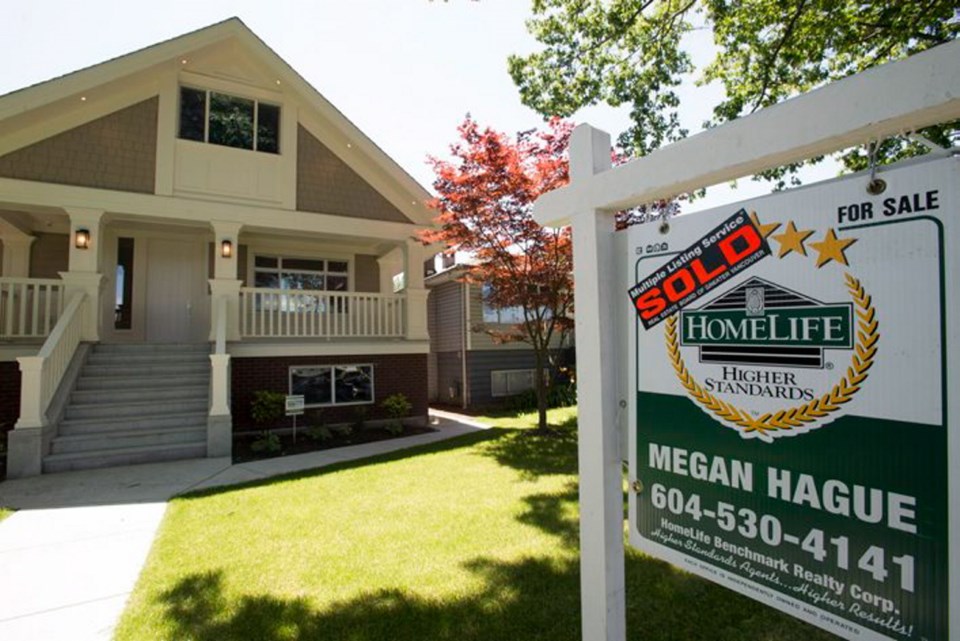 The two biggest issues with the vacancy tax to take effect in Vancouver next year are defining “vacancy” and identifying what’s vacant.
The two biggest issues with the vacancy tax to take effect in Vancouver next year are defining “vacancy” and identifying what’s vacant.
Neither of them is likely to be addressed in the legislation to be introduced in a special sitting of the legislature on July 25. The B.C. government is just giving the city the legal authority to create the tax. What’s unclear at this point, apart from how high it will be, is exactly how it will be devised, and which government — city or province — will handle most of the work involved in enforcing it.
B.C. Liberals want to be seen to be acting on the real estate-housing issue, but don’t want to get too deeply involved in what could turn out to be a big, expensive, ongoing operation. Particularly one that involves a tax hike and more regulations, two phrases that used to be considered swear words around the cabinet table.
But the decision to accede quickly to Vancouver Mayor Gregor Robertson’s demand does include some provincial involvement. The city staff report on the vacancy tax foresees the provincial government doing a lot of heavy lifting when it comes to administering the tax.
One of the specific moves included in the proposal is a request to the province to direct the B.C. Assessment Authority to “create and administer” a new class of property — “residential vacant.”
How assessors determine what fits into that category is an open question. The annual drive-by appraisals won’t be able to conclude much in the way of occupancy, so the initial designation will rely on disclosure by the property owner. The city report on the vacancy tax acknowledges “it would be very difficult for a government to set up a system to definitively prove that a property was unoccupied for a specified period of time (e.g. one year or more).”
The report said the tax will apply to owners who are neither occupying the residence nor renting it out on a long-term basis. Owners would have to provide evidence of occupancy or long-term rental, by way of official ID with an address, or a lease agreement, to avoid the tax.
“In order to be practical and enforceable, a tax on long-term empty housing would also need to target under-occupied investment properties (e.g. second homes occupied occasionally by the owner),” said the report.
Identifying vacant homes would have to be done annually and the city admits that would involve self-declaration by owners, followed by an audit-complaint process, which would amount to considerable work.
The report said there would be significant resource and cost implications if city hall had to do the work, so it recommends that the province take the lead on administering it, since it already collects data on primary residence and rental income through the homeowner-grant program and income-tax collection processes.
But that’s not the way Finance Minister Mike de Jong sees it.
“The implementation and administration day to day would rest with the city of Vancouver,” he told reporters in announcing the move.
De Jong said the province will amend the Vancouver Charter to give the city power to invent such a tax, and it will make all the information the city needs to enforce the tax available. But he didn’t sound very interested in taking on the responsibilities discussed in the report.
The Vancouver tax will be the template for any others that follow. De Jong said any other municipality that wants a vacancy tax will likely get whatever it needs in the way of legislative authority.
It’s part of the argument that’s been underway for years between the province and local governments about housing. Municipal leaders demand B.C. do something about the need. Provincial leaders demand they do something about exorbitant development charges and long delays in approving residential construction.
The goal of the vacancy tax is to prompt the owners of more than 10,000 vacant residences in Vancouver — widely assumed to be absentee foreign owners — to start renting them out, to avoid paying a few thousand dollars more a year in taxes.
The other open question about it is whether it will work.



